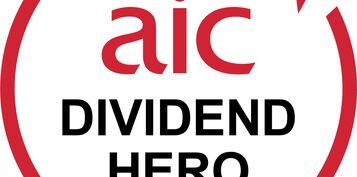Investing for income with investment companies
David Prosser outlines reasons why income seekers should consider investment companies.

Thousands of Britons who rely on their savings to generate an income are in real difficulties during these unprecedented times. With the Bank of England’s base rate reduced to a remarkable 0.1% to protect the economy during the Covid-19 crisis, the returns on cash savings from banks and building societies are pitiful. On the stock market, meanwhile, even the companies with the most consistent records of paying good dividends are cutting or cancelling their distributions as revenues dry up.
If you’re retired and looking to your pension investments to generate income for you to live on, this is a potentially disastrous situation. And plenty of other people depend on investment income too - to cover the cost of school fees, for example, or any other regular financial commitment.
Three ways investment companies can help
All is not lost, however. The investment companies sector could offer some calm amid the income storm, thanks to some of its unique characteristics. There are at least three different ways to exploit investment companies to generate the income that you need.
First, consider those funds with a long-term track record of raising their dividends year-in, year-out even during the most difficult times. The industry’s “dividend heroes” have pulled off this trick every year for decades. Such funds exploit the fact that unlike other funds, investment companies are allowed to build up dividend reserves, keeping back some of the income they earn in good years to fund pay-outs in tougher times. Analysis suggests the leading exponents of this technique have reserves in place to increase dividends this year and next.
The second possibility is an investment company where shareholders have given the board permission to pay income out of capital. Again, this is a feature only investment companies can offer. Where investors have agreed, they can fund dividend payments from the capital returns they’ve earned; this means funds can pay an income even if they’re invested in assets that don’t generate any income at all.
Third, you could consider a more DIY approach. There’s nothing to stop you simply cashing in some of the capital return you make on investment companies in order to pay yourself an income. Go too far and you’ll undermine the capital base you need to fund income in the future, but withdrawing a modest income in this way is a perfectly sound strategy.
Exploit your tax allowances
The other issue to focus on in this environment is maximising tax efficiency – it’s important to be able to depend on every penny of income you generate, rather than handing an unnecessary slice to the taxman.
On investment company shares held with individual savings accounts, there is no capital gains tax or income tax at all to pay, so Isas are a good option in this regard. The rules on investments held inside pension plans are a little more complex – tax may be payable depending on how much income you draw down and how you do it – but these are also tax-efficient vehicles.
In addition, everyone is allowed to a tax-free dividend allowance each year, worth £2,000 in the 2020-21 tax year. This is the amount of dividend income you can earn without facing a tax bill. Above the threshold, tax is payable on dividends, though at different rates to the standard levels of income tax. Basic-, higher- and additional-rate taxpayers pay 7.5%, 32.5% and 38.1% on taxable dividend income.
One other possibility is worth considering. Venture capital trusts (VCTs) are a type of investment company with a special tax status, granted because they invest in smaller, often early-stage companies with a higher risk profile. Never invest simply for a tax saving – you must be confident of the risks you’re taking – but VCTs do offer tax-free returns on dividends and capital growth, as well as upfront tax relief, so could be another useful option for income seekers.






